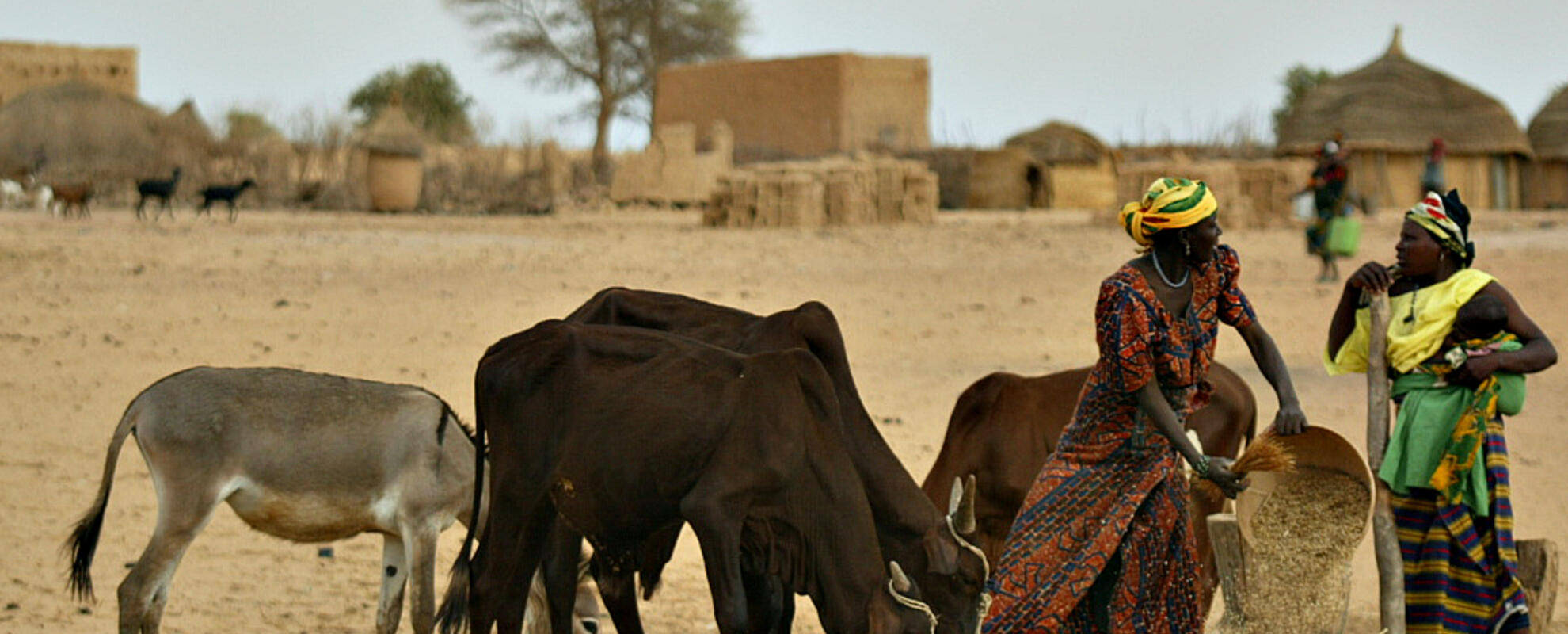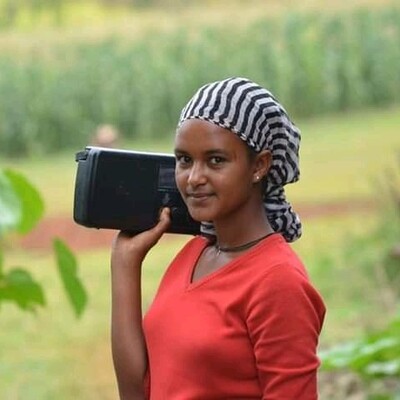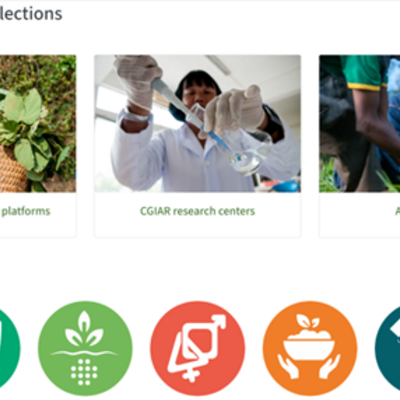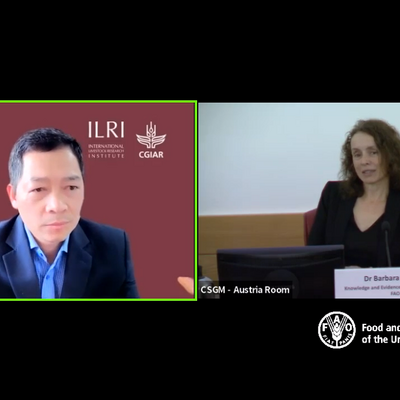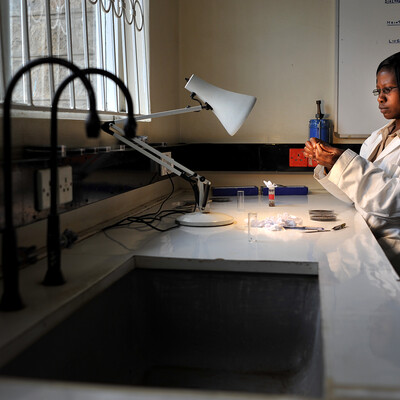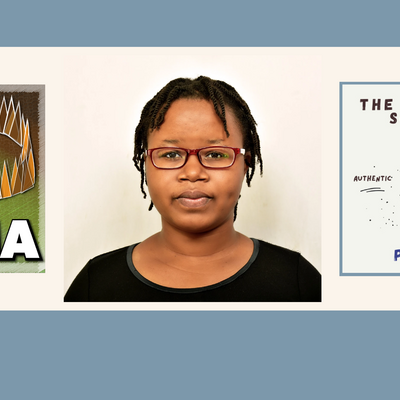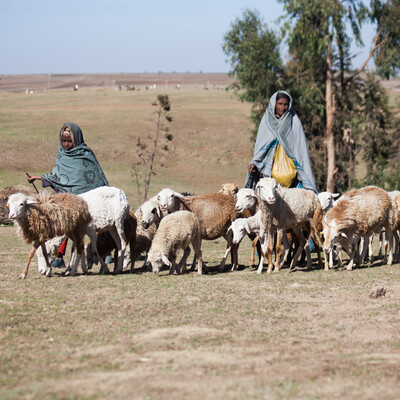
Beyond meat and methane—Advocating for sustainable livestock production

Village women and their livestock in Niger (photo credit: ILRI/Stevie Mann).
This article is jointly written by Brian Kawuma, an ILRI communications specialist based in Uganda, and Laura Arce, a student at John Cabot University, in Rome, both of whom participated in, and reported on, the 3–5 Oct 2017 GLAD meeting.
For more than 700 million livestock-dependent people across the globe, livestock are much more than a glass of milk or a plate of meat. For these people, livestock are critical economic and cultural assets. For them, livestock provide essential nutrients to mothers and children, livestock manure nourishes and replenishes soil and livestock provide muscle to transport people and goods and to plough fields. Such livestock interests in the South are being drowned out by ongoing livestock debates in the North.
To help counter these unbalanced narratives and to increase understanding of livestock-in-development dialogues, a Global Livestock Advocacy for Development (GLAD) project is distilling evidence around livestock ‘goods’ and ‘bads’, reaching out to UN and other global policy processes and events, engaging global media and developing a group of champions—individuals capacitated to make the case for sustainable livestock. The project is also developing a user-friendly toolkit giving access to livestock evidence, facts and key statistics as well as a learning module to help people better advocate livestock-for-development issues.
The project is financed by the Bill & Melinda Gates Foundation (BMGF) and the CGIAR Research Program on Livestock and is led by the International Livestock Research institute (ILRI).
The project bases its evidence-based activities around five priority issues: growth and equity, climate change and the environment, human and animal health, nutrition, and gender.
At the end of its first year, the project convened partners and collaborators in Nairobi to take stock of activities and critically asses initial results and plans. People from the donor, research and development communities as well as the public and private sectors met to test and validate the project’s products and insights gained so far and to generate ideas to take the results of this and other projects forward.
Opening the meeting, ILRI director general Jimmy Smith highlighted the need to debunk many of the myths about livestock farming and consumption by the world’s poor by utilizing scientific evidence generated by the research community (read more about livestock myths and misperceptions in developing countries).
‘Livestock make up on average 40% of gross domestic product in developing countries in Africa and Asia but communities in these regions have not been involved in the on-going debates on livestock. We need to be the voice of the voiceless’, Smith said.
After an introduction to the project, participants dived into reviews of livestock evidence assembled to date and effective approaches to advocating livestock-for-development issues. The feedback gained will be used to improve various products of this project now in draft forms.

Group discussion using the BMGF ‘advocacy wheel’ at the GLAD convening (photo credits: ILRI/Brian Kawuma).
Participants shared a few of their insights at the GLAD meeting.
While all the other issues are important, our organization focuses on growth and equity, which are the global goals for sustainable livestock. We’ve had better success by anchoring our advocacy around sustainable development and how livestock contributes to this.
—Eduardo Arce Diaz, Global Agenda for Sustainable Livestock (GASL)
We ought to tell the story of livestock people. Facts are important but presenting the human faces behind livestock enriches the narrative.
—Franck Berthe, Livestock Global Alliance (LGA)
Our research generates technology geared towards commercialization, growth and equity, as these are the most pertinent issues for KALRO, with significant attention to climate change, the environment and gender.
—Tabby Karanja, Kenya Agricultural and Livestock Research Organisation (KALRO)
As we communicate, let’s create a human connection. Know the person, listen to their point of view and present your argument in line with their language and interests. This provides instant social capital.
—Shirley Tarawali, ILRI
Participants reviewed a series of project plans and follow-up activities, with a community of practice and champions as the convening and information-sharing mechanism for this. As well as being a forum to share learning and best practices in the use of creative content on sustainable livestock and its development contributions and impacts, the community will critique and help shape the various products under development, including a communications toolkit, an evidence base and learning products, and explore ways to better coordinate and cross-advocate different policy and outreach efforts. See the project wiki for notes and resources from the meeting and a few photos.
Read more about this ILRI-led Global Livestock Advocacy for Development (GLAD) project
ILRI remarks to UN Committee on Food Security commending newly agreed livestock recommendations, ILRI News blog, 18 Oct 2016.
Sustainable livestock, sustainable lives: Livestock’s role in global health, equity and environment, ILRI News blog, 26 May 2016.
Persuasion: Towards a calculus of influence in livestock research for development, 15 Feb 2016.
What we talk about when we talk about ‘evidence-based’ advocacy communications, ILRI News blog, 13 Jan 2016.
Read some of ILRI’s and GLAD’s advocacy materials
Animal health needs partnerships for vaccine delivery, opinion piece by ILRI’s Delia Grace published in SciDevNet, 16 Aug 2017.
Why livestock are essential for Agenda 2030—Jimmy Smith at the High-Level Forum on Sustainable Development, 14 Jul 2017.
A key component to ending poverty and hunger in developing countries? Livestock, opinion piece by ILRI’s Steve Staal, Los Angeles Times, 13 Jul 2017.
Capitalizing on women in livestock development—ILRI’s Jimmy Smith and Isabelle Baltenweck speak out, ILRI news blog and Thomson Reuters Foundation News, 9 Jul 2017.
On the two central, and under-resourced, assets of the developing world: Women and livestock, ILRI Clippings blog, 13 Jun 2017.
The many benefits of livestock are the focus of an international meeting in Addis Ababa, ILRI Clippings blog, 9 May 2017.
Cooperating with the future: Towards multiplying the multiple benefits of sustainable livestock, ILRI Clippings blog, 9 May 2017.
Concrete solutions underline centrality of livestock to sustainable development, ILRI Clippings blog, 8 May 2017.
How the anti-meat mantra of rich countries hurts development in poor countries, ILRI Clippings blog, 20 Apr 2017.
Simplistic livestock solutions no help for poor people in transition from smallholders to ‘smartholders’, ILRI News blog, 19 Apr 2017.
Jimmy Smith in Australia makes the case for greater investments in pro-poor livestock development, Devex and ILRI Clippings blog, 19 Apr 2017.
Opinion: Can the livestock sector find the elusive ‘win-win’ on drug resistance?, opinion piece by ILRI’s Delia Grace published in Devex, 16 Dec 2016.
Livestock opportunities for responsible, inclusive and sustainable business-for-development partnerships, ILRI News blog, 2 Dec 2016.
Unpacking the tensions between the nutritional and economic goals of pro-poor livestock development, presentations by ILRI’s Shirley Tarawali and Delia Grace at a webinar on ‘Livestock markets, animal-source foods and human nutrition: Considering program tensions, maximizing impact and avoiding harm’, part 2 of a 4-part ‘Livestock and Household Nutrition Learning Series’ jointly organized by Land O’Lakes International Development and ILRI, 10 Nov 2016.
Let’s ‘meat’ in the middle on climate change, opinion piece by ILRI’s Polly Ericksen, published by Euractiv, 4 Nov 2016.
Pandemic proofing the world, opinion piece by ILRI’s Delia Grace on ‘How We Get to Next’, a magazine published on Medium, 28 Jun 2016.





